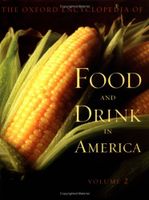Label
All
0
Clear all filters
🔥 Celebrate new books on our BBQ & Grilling shelf with 25% off ckbk membership 🔥
Orthodox Union
Appears in
Published 2004
Informally, “kosher” refers to something proper or legitimate, but the word has a very specific and technical meaning. For food to be kosher, in the formal or strict sense, the ingredients and the equipment involved in its preparation must conform to the detailed requirements of Jewish law, set forth in its fundamentals in the Bible and elaborated upon in the rabbinical scholarly tradition.
When a kosher-observant Jew sees a product in the market, his or her evaluation of whether the product is kosher is thus informed not only by a familiarity with kosher law but also by an understanding of how the product is made. If the food is simple, such as a peanut, kosher law permits a person to presume that it is innocuous. But in many cases, particularly in highly processed foods that contain a number of ingredients—creamy peanut butter, for example—a contemporary shopper has no idea how the food may have been made and is ill equipped to determine whether it is in fact kosher. In such cases it is necessary to look for kosher certified food, which means that a trusted independent agency has visited the manufacturing site and verified that the ingredients and processing adheres to kosher law (it does not mean that the food has been blessed).
Become a Premium Member to access this page
Unlimited, ad-free access to hundreds of the world’s best cookbooks
Over 150,000 recipes with thousands more added every month
Recommended by leading chefs and food writers
Powerful search filters to match your tastes
Create collections and add reviews or private notes to any recipe
Swipe to browse each cookbook from cover-to-cover
Manage your subscription via the My Membership page
Best value
Part of
Advertisement
Related Recipes
-
-
-
-
Related Reference
-
-
-
-
Advertisement
The licensor does not allow printing of this title



